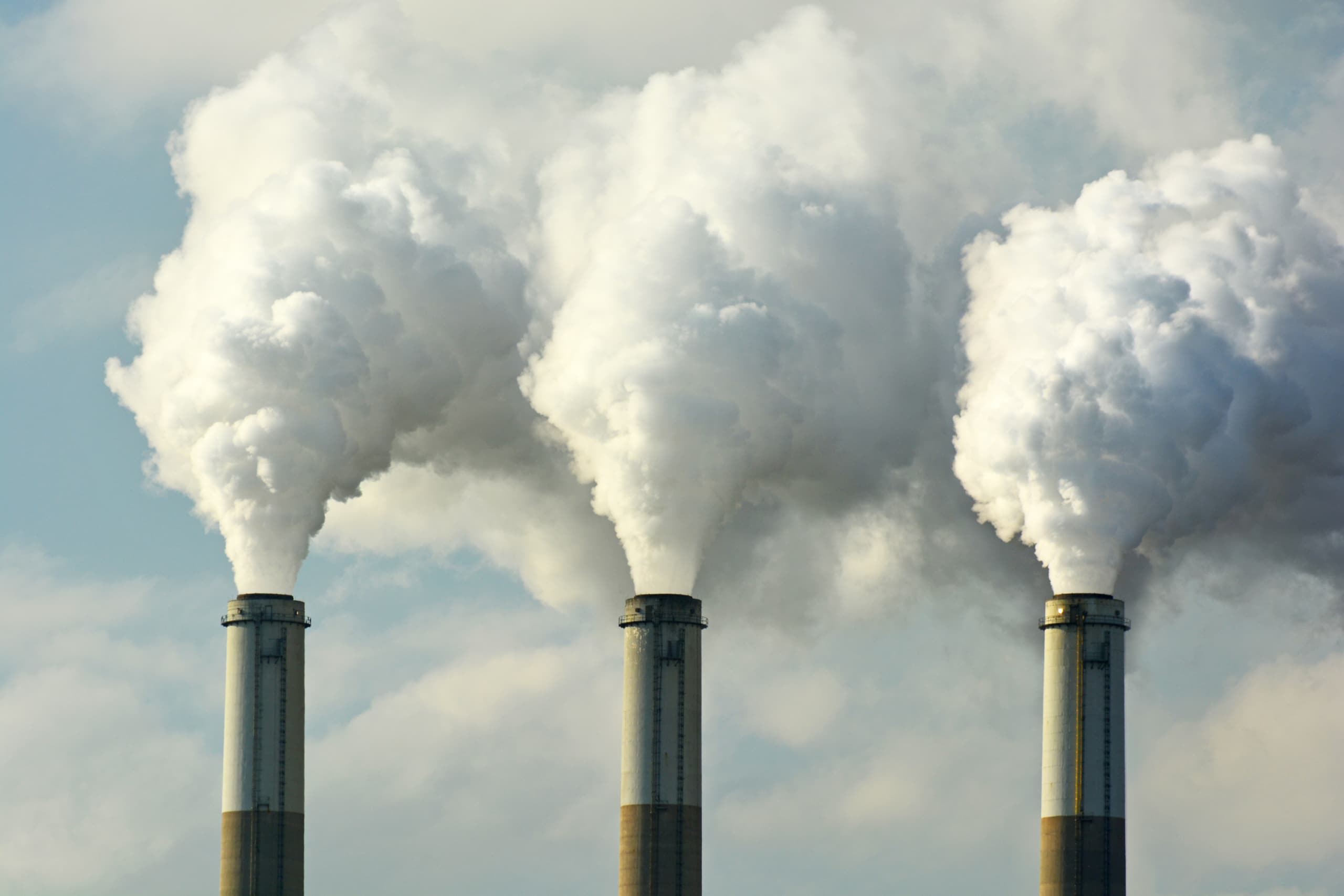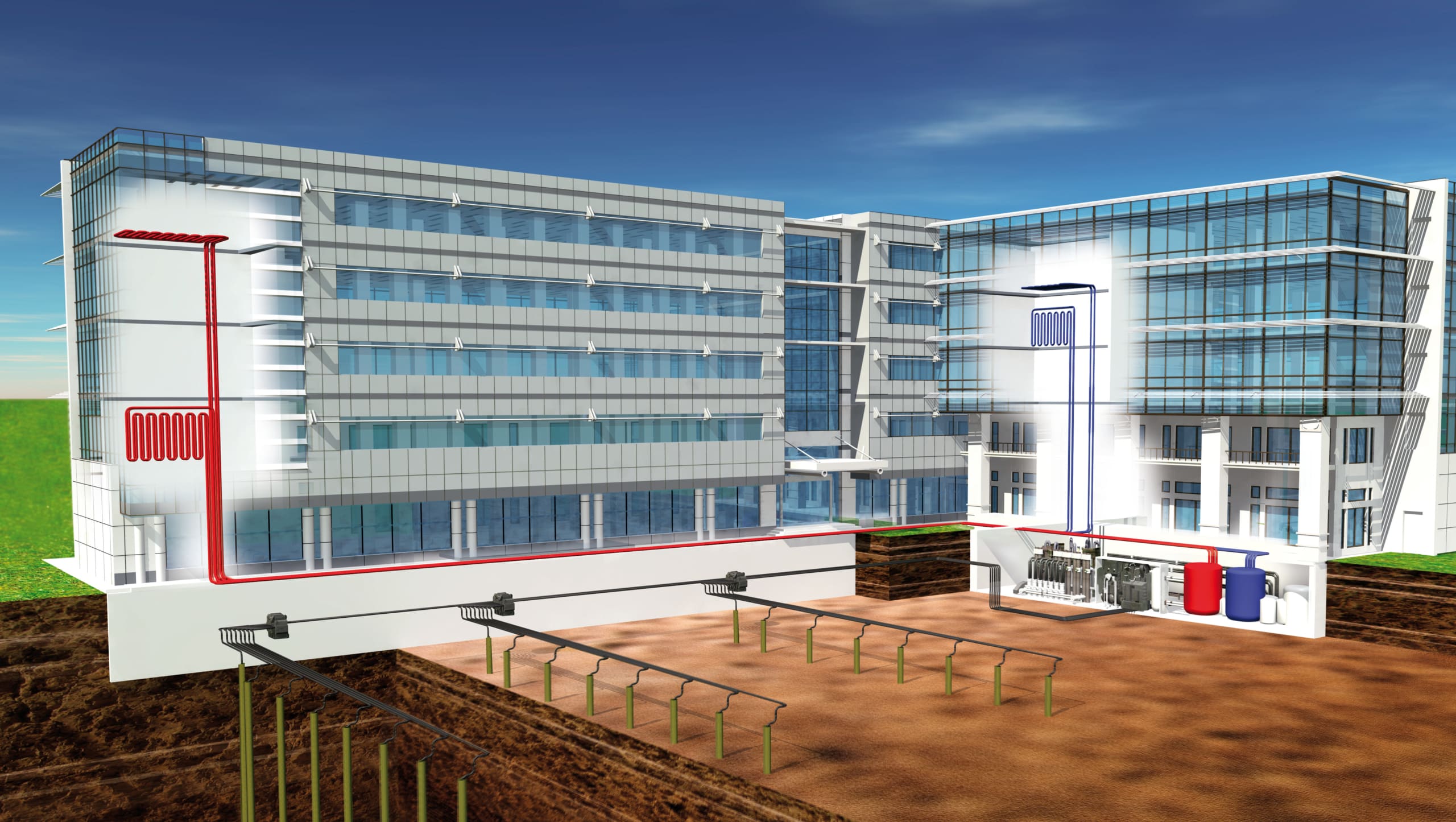Your trusted home service experts
What is Geothermal Energy – Explained and Explored
Geothermal energy, or geothermal power, is a renewable energy source derived from the Earth’s internal heat. It’s harnessed for heating, cooling, and electricity generation. Geothermal systems tap into the Earth’s natural warmth, providing eco-friendly and cost-effective solutions for a sustainable future.
Hoffmann Brothers GeoThermal Experts
We have a full team of Geothermal experts that have been working on the many types of Geothermal installations in the St Louis area for may years.
Learn More About Hoffmann’s Geothermal Services
Introduction To Geothermal Energy
Within the last 15 years, interest has peaked for clean, renewable energy sources because of their cost-saving nature and positive impact on the environment. One of the most popular options for green energy is Geothermal energy. Geothermal energy has been used for centuries, even as early as the 1800s, and the uses for geothermal energy have continued to develop with technological advances. Now, geothermal energy has become a popular choice for sustainable and renewable energy to heat and cool homes and businesses. As the name indicates, Geothermal energy capitalizes on heat (thermal) that emanates from the Earth’s core through the ground (geo). Because the heat from the Earth’s core is constantly replenished, there is no worry that it will be depleted, unlike natural gas. Geothermal energy also has a minimal environmental footprint, classifying it as a clean energy source.
How Does Geothermal Energy Work?
To understand Geothermal Energy in the simplest terms, you can think of it as heat from the Earth. For a deeper understanding of Geothermal Energy, you can dive back into grade-school science class, where you learned about the makeup of the Earth. Earth is made of different layers, and at the very center is Earth’s core. If you recall, Earth’s core is extremely hot. This is due to the decay of radioactive elements and leftover heat from the planet’s formation. The heat from the core radiates to the outermost layer, the crust. Geothermal energy utilizes that heat for generating electricity, heating and cooling homes, and other applications.
Environmental Impact

One of the reasons that Geothermal Energy has become a favorable energy source is because it’s green energy or has a relatively low impact on the environment. Geothermal power plants emit 99% less carbon dioxide than fossil fuel power plants. Geothermal power plants emit 99% less carbon dioxide than fossil fuel power plants [1]. Geothermal Energy is renewable energy, which means it gets its energy from a source that is not depleted when used; many people are familiar with wind or solar power as renewable energy sources. Since the Earth’s core is consistently replenished, Geothermal Energy is a renewable energy source.

Geothermal Vs. Traditional Energy Sources
Most electricity in the United States is generated by four significant sources: natural gas, coal, nuclear and renewable energy. Natural gas was the largest source of U.S. electricity generation in 2022 [2], with renewable energy following as the 2nd largest. Natural Gas, Coal, and Nuclear energy are all non-renewable energy sources, meaning at some point, we’ll run out of these sources. They also pose significant costs to our environment and can have adverse health impacts on the communities where the power plants are housed, which is why there has been a shift in government policy and culture to invest in renewable energy sources. Renewable energy, such as Geothermal Energy, is the fastest-growing source up 42% in the past decade.
Renewable Energy For Businesses And Industries

Renewable energy is no longer just a buzzword; it’s a crucial path toward sustainability and cost-efficiency for businesses and industries. Embracing renewable energy sources, such as solar, wind, and geothermal power, presents opportunities for reducing carbon footprints, cutting energy costs, and securing a greener future. Many businesses and industries are transitioning to renewable energy as an ethical commitment and a strategic move to bolster their bottom line[3]. By harnessing the power of renewables, organizations can tap into clean, abundant energy while demonstrating their commitment to a more sustainable planet. This transition reduces environmental impact and strengthens the resilience and competitiveness of businesses and industries in an evolving energy landscape.

Applications of Geothermal Energy
Geothermal energy is currently being applied in two significant ways: geothermal power plants to generate electricity and geothermal HVAC systems to heat and cool homes and businesses.
Geothermal Energy for Electricity
Geothermal power plants harness the energy from the ground to generate electricity. This is typically done by drilling wells underground and bringing the liquid to the surface to produce steam, which then drives turbines to create electricity. The excess energy/liquid is then pumped back into the ground to be used again. Three main types of Geothermal Power Plants are dry steam, flash steam, and binary cycle.
Geothermal Heat Pumps for Heating and Cooling
Geothermal energy can be used in a geothermal heat pump to heat and cool buildings, homes, or swimming pools. You can almost think of Geothermal Heat Pumps as a battery, during the summer the heat pump is charging the battery. It takes the heat from the home into the ground to be used later. Whereas in the winter, the heat pump uses the stored heat from the summer and heat extracted from the ground to heat the home, building, etc. Essentially, the heat pump is moving this energy back and forth as needed.
Common Misconceptions About Geothermal Heat Pumps
- Geothermal Heat Pumps need more space than normal heating and cooling: Geothermal heat pumps are compact and hidden. No outdoor unit; everything is underground. Options for small yards, like vertical loops in cities.
- Geothermal Heat Pumps will ruin my landscaping: While the initial installation may disrupt your yard and landscape, the closest the underground loops will get to the surface are about 3 feet from the surface, which would not affect landscaping or the yard.
- Geothermal Heat Pumps are not worth the investment: Geothermal heat pumps are long-term savings. They last 20-25 years, are highly efficient (40% energy bill savings), and pay for themselves in 5-10 years.
- Geothermal Heat Pumps don’t work in extreme temperatures: Geothermal heat pumps are not affected by the outdoor air temperature. The system relies on the ground temperature, which is consistently around 55 degrees, so even when it’s 0 degrees or 100 degrees, it works the same and uses the same effort to heat and cool the home.
Getting Started with Geothermal Energy
If you’re interested in going green and installing a geothermal system, the best way to get started is to find a reliable installation contractor to get the job done right. Not all heating and cooling companies can install and maintain geothermal systems, so it’s important to do your research on reputable installers in your area. Some companies may want the sale but won’t be available for service or maintenance of your new geothermal system. Consider the following questions when determining the right installation professional for you:
- Can the company install, maintain, and service the unit?
- Do they have professionals trained in geothermal systems?
- Was a heat load calculation completed before installation?
- Are they associated with reputable organizations such as the International Ground Source Heat Pump Association or Geothermal Exchange Organization?
- Can they provide details on local and federal rebates and incentives?
- What warranties on labor and parts are provided?
Rebates And Incentives
To encourage utilizing more environmentally friendly and sustainable methods for energy, there are federal and local credits, rebates, and incentives for investing in geothermal energy.
- Residential Clean Energy Tax Credit: With this credit, the federal government offers 30% of the costs of a new, qualified, clean energy product installation anytime between 2022 and 2032. Geothermal heat pumps are included in this credit, as well as solar panels, solar water heaters and more. This can cover any costs associated with a geothermal heat pump installation, including the unit itself, ductwork, etc.[4]
- Energy Efficient Commercial Buildings Deductions: qualifying commercial building owners who invest in energy-efficient upgrades resulting in at least a 25% increase in energy efficiency can claim either the cost of the installed property or the savings per square foot.[5]
- Credits for Builders: Contractors who build or sustainably reconstruct energy-efficient homes may be able to qualify for up to $5,000 in credits per home.[6]
- Local Rebates and Incentives: many local energy providers now offer additional incentives for energy-efficient home upgrades. These offers vary from city to city, check your local providers’ websites to see what additional savings you can claim by transitioning to geothermal energy.
Advantages & Disadvantages of Geothermal Heating & Cooling
Any updates to your home or business are an essential investment. Weighing the advantages and disadvantages can help you make the right decision for your future.
Advantages:
- Environmentally Friendly: Geothermal energy is a renewable, clean, and sustainable source. A typical air conditioning system releases about 1 pound of CO2 per hour whereas a geothermal system emits only .18 pounds per hour.
- Longevity: Geothermal systems are long-lasting, especially when proper maintenance is completed. A traditional HVAC system lasts between 10-15 years on average. A geothermal typically lasts 20-25 years. The wear and tear on outdoor units can also affect traditional units, where geothermal units are inside and underground, not affected by air temperatures or other outdoor factors.
- Cost Savings: Geothermal systems are very efficient, meaning it takes less energy to operate a geothermal system than the energy it outputs. Typical geothermal systems operate at around 400% efficiency compared to traditional methods at about 95%-96%. This means geothermal systems can cut energy bills by up to 65% [7].
Disadvantages:
- Expertise: Geothermal systems are more complex than traditional heating and cooling systems and, therefore, typically require additional training. Finding a heating and cooling company that can service and maintain the system may pose a challenge, possibly resulting in higher repair costs or longer wait times.
- Upfront Cost: While geothermal systems can save you big in the long run, you will see high upfront costs for installation. Installing geothermal systems can be very technical and require large updates to the home or business. Tax credits and rebates can help offset the upfront costs, but this is still a significant factor in deciding if geothermal is right for you.
St. Louis
Explore the services we
offer at our St. Louis Location!
-
(314) 664-3011
-
1025 Hanley Industrial
Brentwood, MO 63144
Nashville
Explore the services we
offer at our Nashville Location!
-
(615) 515-3015
-
45 Willow St
Nashville, TN 37210



